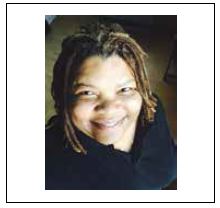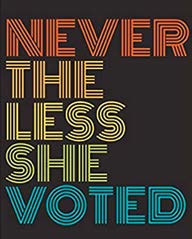
By Andrea Shorter–
This October 2020 marks the 15th Anniversary of LGBTQ History Month. Did you know that LGBTQ History Month was originated by a high school teacher in Missouri? We can thank Rodney Wilson for making history by making LGBTQ history a regular occurrence in his classroom to extend celebration of gay and lesbian trailblazers beyond national Coming Out Day on October 11—also Cleve Jones’ birthday: Happy Birthday, Cleve!
The tradition of LGBTQ History Month is that each of the 31 days of October celebrates an LGBTQ-identified person who has or is making notable contributions to advance LGBTQ civil and human rights, cultural impact, and more. According to this year’s LGBT History Month calendar, today (October 8) we celebrate Menaka Guruswamy and Arundhati Katju. In fact, this October 8 is the only date on which two persons are celebrated, and what a bonus. Guruswamy and Katju are the amazing team of public interest litigators who fought the long battle that eventually brought about the landmark judgement in India’s high court to overturn a 157-year-old law outlawing homosexuality. The 2019 overturn of outdated vestiges of repressive British colonial rule in India was the win heard around the world and from within the world’s largest democracy.
This long-awaited end of nearly two centuries of outright prejudicial and oppressive homophobic law in India should be celebrated by all invested in the truest ideas of democracy and its promise to promote fairness, equity, and due representation. Obviously, beyond litigating towards the right to same sex civil marriage equality as the U.S. Supreme Court ruled law of the land, the fight against similarly repressive and oppressive laws and practices against LGBTQ people in the U.S., once the beacon of democratic hope, continues.

While we are in a time of critical reckoning with the long-term, deep damages of systemic racism and the gross social, economic, and justice disparities caused by racism, we still live daily as second class citizens without consistent anti-discrimination protections for LGBTQ people including in employment, housing, credit, education, public spaces and services, federal funded programs, and jury service. The long-awaited passage of the Equality Act would provide those protections. Without Democrat majorities in the Congress and Senate, and a Democrat president into the next term, we are not likely to finally see passage and enactment of the Equality Act for potentially decades to come.
The recent heartbreaking loss of Justice Ruth Bader Ginsburg; the expected GOP-driven, fast-tracked rush to replace her with a conservative jurist nominee to basically reverse and demolish the progressive legacy of Justice Ginsburg; and this president’s relentless coup staging campaign to undermine voter confidence in the safety and legitimacy of the upcoming elections per vote-by-mail ballots, compounded with, yet again, his refusal to denounce white supremacist groups and violence are but a few of the latest trials and troubles demonstrating just how much our democracy is under severe threat.
Before The New York Times’ big reveal that Trump himself is $400 million in debt to who knows, and that—assuming he survives COVID-19—he will continue to be vulnerable to being compromised by foreign entities to whom he is likely indebted, the urgency of removing Trump and his family from the White House, and fighting for Democrat majorities in both chambers of the legislative branch is as urgent as can be. Trump’s recent rallying bluster to end critical race studies in universities as deemed by him (a/la Steve Miller) as un-American should give us further cause for pause. An authoritarian threat to ban reality-based education about the histories of people of color as not complimentary or reverent to the history or idea of a colonial white majority dominated nation is a threat to the teaching and celebration of LGBTQ history as well.
Fifteen years is not a long time to enjoy formal teaching and celebration of LGBTQ history in public schools in Missouri, California … anywhere. In that respect, we are just getting started. This election is proving to be the most important in our lifetime. It is painfully obvious and sobering that the outcomes of this election will impact our well-being as LGBTQ people seeking, demanding, and deserving equal protection under federal law. In that respect, LGBTQ history—how it unfolds into the next term, and how our stories are told or not—is also on the ballot. For the record, for our histories past and yet to come, please vote accordingly.
Andrea Shorter is a Commissioner and the former President of the historic San Francisco Commission on the Status of Women. She is a longtime advocate for criminal and juvenile justice reform, voter rights and marriage equality. A Co-Founder of the Bayard Rustin LGBT Coalition, she was a 2009 David Bohnett LGBT Leadership Fellow at the Harvard Kennedy School of Government.
Published on October 8, 2020
Recent Comments